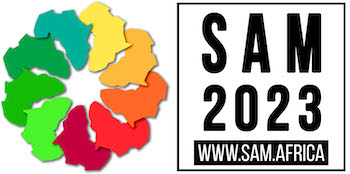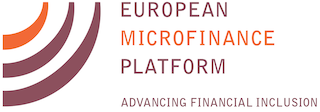 In anticipation of SAM 2023 (Semaine Africaine de la Microfinance 2023), its organisers convened a panel discussion on October 19 as part of Accion’s Financial Inclusion Week. The panel illustrates the commitment of SAM’s organisers to nurture ongoing dialogue on the issues faced by the inclusive finance sector. The objective was to share and question the strategies being used to address issues faced by the agricultural sector, which remains one of the least financed due to investors’ perception of it as high-risk.
In anticipation of SAM 2023 (Semaine Africaine de la Microfinance 2023), its organisers convened a panel discussion on October 19 as part of Accion’s Financial Inclusion Week. The panel illustrates the commitment of SAM’s organisers to nurture ongoing dialogue on the issues faced by the inclusive finance sector. The objective was to share and question the strategies being used to address issues faced by the agricultural sector, which remains one of the least financed due to investors’ perception of it as high-risk.
Climate change coupled with social and political turmoil is negatively impacting agricultural value chains in particular and global food security in general. The conflict between Ukraine and Russia is lowering food security and agricultural production in many developing countries, as the warring nations are two of the largest exporters of key agricultural commodities such as wheat, corn, sunflower oil and fertiliser. The Horn of Africa could suffer the worst effects of the war because of its ongoing food crisis following three years of severe drought, the COVID-19 pandemic and protracted local conflicts. Market volatility and rises in energy costs, input costs, interest rates and perceived risk are expected to lead to higher costs of borrowing, credit crunches, and unmet working capital and liquidity needs.
Addressing these issues at the Financial Inclusion Week panel were:
– Jacques Afetor, Executive Director of Assilassimé Solidarité, a Togolese MFI supporting
 In a session on strengthening agricultural value chains today at European Microfinance Week, Daphne van Dam of Cordaid described her organization’s work to support onion farmers in Senegal. The farmers were struggling with the cost of fuel for irrigation. Cordaid was able to partner with local microfinance and solar providers to supply farmers with solar-powered irrigation systems that they could pay for on a schedule attuned to the harvest time of their crop.
In a session on strengthening agricultural value chains today at European Microfinance Week, Daphne van Dam of Cordaid described her organization’s work to support onion farmers in Senegal. The farmers were struggling with the cost of fuel for irrigation. Cordaid was able to partner with local microfinance and solar providers to supply farmers with solar-powered irrigation systems that they could pay for on a schedule attuned to the harvest time of their crop.
